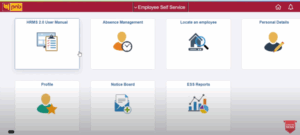Why You Shouldn’t Ignore Wage Garnishment Orders

If you owe taxes and have not paid, you may be subject to wage garnishments.
Wage garnishment ordered by the IRS – also referred to as IRS levies – seize your wages. Each pay period, the IRS will receive part of your wages. For how long? Until…
- The levy is released;
- You’ve paid your overdue taxes; or
- You make other arrangements for payment
There may be an amount that is levy exempt, which will be received by you. What determines the amount that will be exempt?
- The standard deduction and;
- A calculated amount that is based, in part, on how many dependents are allowed you for the year of the served levy.
As An Employer
Even if the person in question doesn’t seem to have enough money, a court-ordered wage garnishment should never be ignored by employers – but strictly followed. There can be extreme consequences if a garnishment is ignored. In most states, this could include the following:
For up to the full amount of the debtor’s outstanding debt, the employer is liable. A disclosure at the end of the garnishment is required by a few states. Here, for the amount that would have been withheld from the wages of an employee, the non-answering garnishee is usually liable. To this nearly unfettered liability, two states – Wisconsin and Georgia – provide employers with an affirmative defense.
Using Georgia As an Example
From state to state, specifics may vary, but here’s what can happen if wage garnishments are ignored in Georgia:
If an employer doesn’t answer a garnishment order, against that employer, a default will automatically be entered. Following that, 15 days are allowed for the employer in which to open the default. They would need to file payment of costs and a belated answer. If these actions are not taken by the employer, a judgment by default may be entered against the employer for the debtor’s outstanding debts for the said amount.
After the notice of judgment, the employer has an additional 60 days to file a judgment modification motion. When the judgment court costs are paid by the employer, the judgment will be reduced. So, acting quickly is in the best interest of an employer because it can nearly eliminate or at least reduce the award against them for failure to answer. Similar garnishee processes are in place for Wisconsin.
Increasing Cases
There is a continuing pileup of cases in which courts are holding employers responsible for money in large sums just because they filed defective answers or missed answer deadlines. Even in Georgia, employers are being held liable by the courts if they miss deadlines.
IF YOU ARE AN EMPLOYER. It is absolutely crucial that, if you don’t want to become liable for your employee’s debt – in full – you know and understand wage garnishment laws. Ignorance of the law is no excuse and will not be looked upon favorably by the courts.
Determining Garnish Amounts
The wage levy will be mailed to the employer by the IRS. It explains how the levy-exempt amount should be determined. A Statement of Dependents and Filing Status will be provided to the employee by the employer. Once this is completed, and within three days, they must return it. If, within three days, it is not returned, the amount for exemption will be calculated as if the employee:
- Has no dependents
- Is filing separately, but as married
If you have other sources of income, exemptions to the other income sources may be allocated by the IRS. A 100% levy of income may be taken from one employer in particular.
What about Bonuses? Are They Exempt?
If separate from your paycheck, you’re scheduled to receive a separate bonus, you may be wondering if it will be affected as would a regular wage payment. Will the IRS receive the entire bonus? Only part of it?
Because, for that pay period, the exempt amount was already paid to the employee, the entire bonus would be received by the IRS. For the purpose of wage levies, the wages or term salary includes compensation for services paid as bonuses, commissions, fees, and similar items.
What If You Pay Child Support?
If you pay child support, to continue making those kinds of payments, you’ll likely be curious as to whether or not that amount can be levy exempt. In your exempt amount, your child support should have been included by your employer. If that didn’t happen, you’ll need a phone number for the IRS so that you can contact them. The court ordered child support amount you need to pay will be released from the levy by the IRS. However, for figuring out the exempt amount, the same child can’t be claimed as an exemption if support is allowed.
Is There Any Way Out?
Can wage garnishment by the IRS be stopped? If financial hardship is being created for you and your family due to wage garnishment, you might be able to convince the IRS to temporarily cease wage garnishments. You have to call them on the phone to declare a financial hardship.
Are there other ways to stop wage garnishment? The following can be explored:
- Work with a tax professional
- Declare bankruptcy
- Declare hardship (as just stated, above)
- Negotiate an Offer in Compromise
- Set up a payment plan
- Pay off the full amount of your tax debt
11 Things to Remember about the IRS and Wage Garnishments
When it comes to wage garnishment and the IRS, here are 12 things that you should never, ever forget:
- Wage garnishments will likely not be issued by the IRS during December’s last few weeks – maybe it’s their holiday spirit.
- To get an expedited garnishment release, use a fax.
- Due to economic hardship, you may try to get the IRS to expedite a wage garnishment release.
- You are under IRS enforcement – there are no and if’s, or buts. You need to work with them.
- Until it is released, the garnishment stays in place.
- To remove a wage garnishment, you can use ETP (exchange traded product).
- Before the IRS will release the levy, all your required returns must be filed.
- The garnishment will the made known to you by your employer rather than by the IRS. They notify your employer.
- Before garnishing your wages, several notices are usually sent to you by the IRS.
- You may be able to receive help from the TAS (taxpayer Advocate service).
- The IRS has complete knowledge of your work location.
What’s the best way of dealing with wage garnishment? Answer: Prevention. In addition to wage garnishments, if you don’t pay the IRS the taxes you owe, there are other types of tax liens and levies which can include property, Social Security, accounts receivable, bank accounts, and more. Before the IRS tries to take away your hard-earned wages, set up some type of IRS collection agreement with them. Seek the help of a professional for the best results.
Working with Tax Professionals
When it comes to working with the IRS, tax professionals have experience in resolving difficult tax situations. If your wages are being garnished by the IRS, you may be able to stop the garnishment by working with a tax professional.
Your tax debt and financial situation will be analyzed by the tax professional. They will then determine how to move forward in the best manner. This can be done, in many instances, through a free consultation. Depending on the specifics of your situation, a tax professional might suggest an Offer in Compromise, a payment plan, or a declaration of bankruptcy.
On your behalf, the professional will work with the IRS, thereby reducing the stress of dealing with wage garnishment and tax debt. Remember, however, that there is a cost for services such as this. For their assistance, you will need to compensate the tax professional/service.
Not sure where to find the best tax professionals? Here’s some advice…
Defense Tax Partners Can Help You Deal with Wage Garnishments
You work hard for a living. With the money you make on the job, you pay your bills, support your family, make house payments, pay for insurance, cover medical bills, purchase groceries, and so much more. The last thing you need is for the IRS to somehow lessen the amount you take home (more than they already do through routine taxes taken out of your paycheck).
But if you got in trouble with the IRS because you couldn’t pay off a tax debt, and they got a wage garnishment order against you, that’s what’s happening. They’re taking your money. Is there an alternative? You need assistance. You need a dedicated team on your side who knows the ins and outs of IRS tax debt and everything that goes with it. You need Defense Tax Partners.
By working with us, you may be able to improve your situation through the following:
- Stopping or preventing wage garnishments
- Stopping or preventing property seizures
- Removing penalties and interest charges
- For a fraction of what you owe, settling your IRS tax debt
- Removing IRS tax liens
- Resolving sales and payroll tax debt
- Stopping or preventing bank levies
If you have questions or would like to speak to a representative, you can call us at 855-503-9070 or email us at clientcare@partnerstg.com. If you prefer, you may wish to use our convenient online form. Simply fill it out, send it in, and we’ll be in touch.
Defense Tax Partners is a tax relief advocate firm that specializes in settling tax debt, ending and preventing wage garnishments, averting property seizures, and eliminating bank levies. With years of experience dealing with the IRS and State Tax Boards, the legal team at Defense Tax Partners has comprehensive knowledge of the nuances of tax law to help you fight your legal cases.






